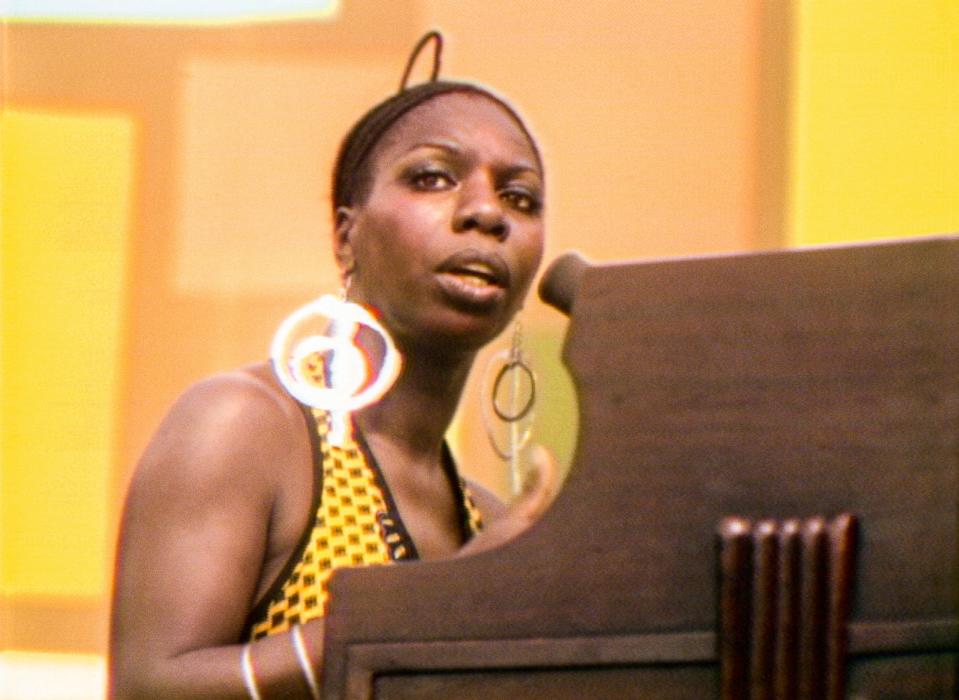In the crucible of historic change, I grew up Black and proud
My parents were young when Black was beautiful.
They were just starting out in the late 1960s. They bought a small bungalow in a nice neighborhood once fair housing laws allowed Black people to move out of the segregated center of Gary, Indiana. They were among the first Black people to get jobs locally at Indiana Bell, mom as an operator, dad as a lineman.
They were citizens of a Gary that bustled with the pride of Black-owned businesses, the excitement of new Mayor Richard Gordon Hatcher’s Black city government and the idea that their generation could achieve the dreams of success that led their own parents to leave the Jim Crow South so many decades before.
I am their firstborn and their witness. But in 1972, I had no idea that history was being made all around me. That history happens every day, just in the motion of going about living. That history is personal, and that in 1972, I was at its epicenter.
I turned 4 the same weekend that the National Black Political Convention brought 10,000 activists, politicians and delegates to my city to craft an agenda that would irrevocably change the face of U.S. politics.
'Unity without uniformity': 50 years later, ideology of 1972 National Black Political Convention still resonates
The Rev. Jesse Jackson of my childhood was a young cat then, who wore dashikis and a full round Afro as he picketed for economic justice with Operation PUSH on nearby Chicago’s South Side. He told us that we were Somebody and we believed him. When Nina Simone, the activist artist, sang “To Be Young, Gifted and Black” we knew that we were. I grew up with no idea that I should be anything less.
USA TODAY's Black History Month 2022 special edition, Black Progress, is a tribute to those who pushed for and brought about lasting change. Some, like Hatcher, Jackson and Simone, preached progress from the main stage. Others, like my parents, made change happen day by day, in the everyday living of history.
Thanks to them, Black is still beautiful, every day.

Issue highlights:
•The National Black Political Convention was the largest such gathering in U.S. history. Reporter Marc Ramirez talked to people ranging from former Gary Mayor Karen Freeman-Wilson, who remembered her parents welcoming visitors to their home, to Indiana state representative Vernon Smith, who started his political career at the convention. “Mayor Hatcher was a visionary,” Smith said. “He saw the strength that could be amassed if we brought everyone together.”
•Rev. Jesse Jackson granted reporter Mabinty Quarshie a 45-minute interview to talk about how Operation Breadbasket, an economic boycott initiative of the Southern Christian Leadership Conference, became Operation PUSH and his signature, lifelong organization.
•It's easy to regard the Blaxploitation movies as outdated camp, but they were revolutionary for their time, reports Marco Della Cava and Rasha Ali. Through Jimmy Cliff, "The Harder They Come" introduced Jamaican culture and reggae music to the world.
•The national Black History theme for 2022 is Black health and wellness. Reporter Alia Dastagir looks at the collective health of Black America and what it will take for us to heal, while N’Dea Yancey-Bragg talks to author Marita Golden about the dangers of the Strong Black Woman myth.
•Reporters Jessica Guynn and Jayme Fraser found that despite the country’s recent racial reckoning, white and male employees remain overrepresented in positions that pay the highest salaries and benefits. Black women are concentrated in the lowest ranks of the Standard & Poor's 100.
•The critical race theory battles in education today obscure the fight to include Black history and Black studies in the nation’s colleges in the 1960s and ’70s. Educators such as Edward Beasley, Bill Keveney reports, created games that made history fun and relevant for everyone.
•In 2019, USA TODAY reporters took Wanda Tucker, a descendant of the First Africans to land in the Virginia colony in 1619, to Angola. More than two years later, she writes about her second trip “home” to the land of her ancestors.
To get your own copy of the Black Progress special edition, visit newsstands everywhere in February or visit our online store.
Also, please take a look at our additional projects: neverbeentold.usatoday.com, 1619.usatoday.com and sevendaysof1961.usatoday.com, which has an e-book available now.
This article originally appeared on USA TODAY: Black History Month: Growing up Black and proud in 1972

